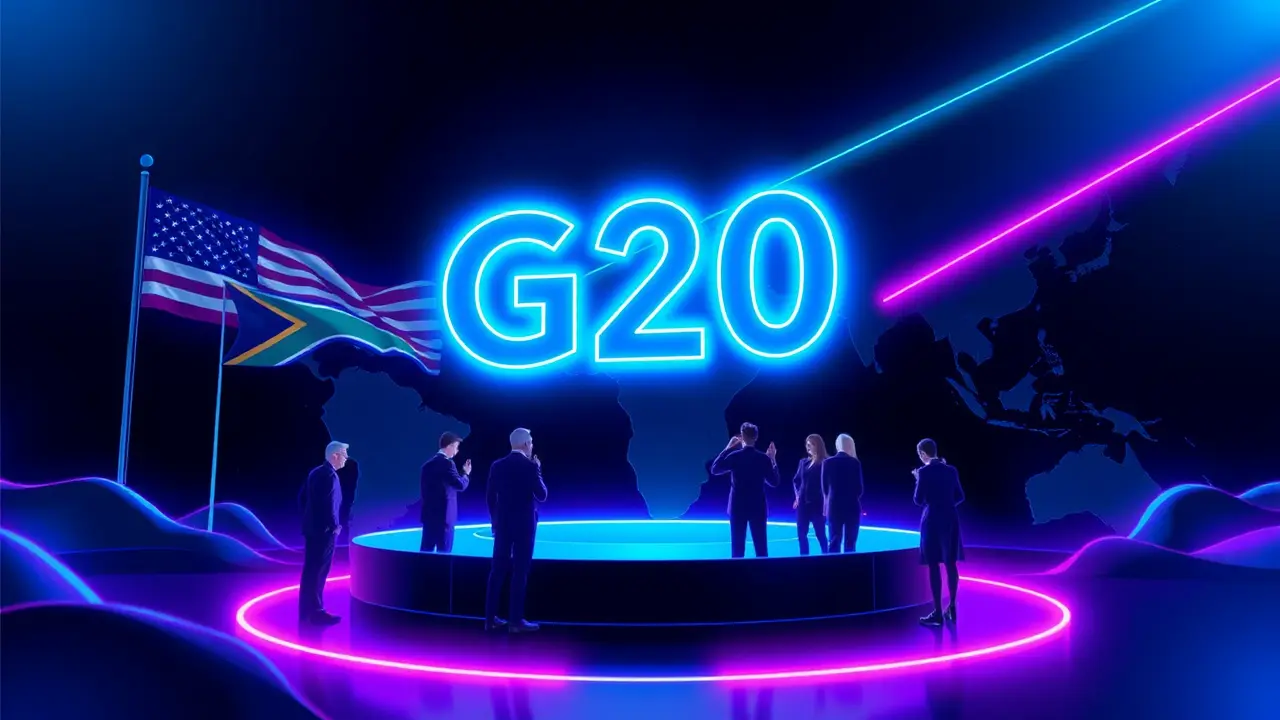
PoliticsdiplomacyMultilateral Summits
US to Boycott G20 Summit in South Africa.
MA
Mark Johnson
12 hours ago7 min read1 comments
In a move that feels ripped straight from a political war room playbook, the United States has declared a full-scale boycott of the upcoming G20 summit in South Africa, a decision delivered with the characteristic blunt force of the Trump administration. The stated rationale, a defense of the Afrikaner minority against what the President called 'persecution,' is a political gambit that lands with a thud on the global stage, given that these claims have been thoroughly discredited by human rights organizations, academic researchers, and on-the-ground reporting from the very nation in question.This isn't just a diplomatic snub; it's a calculated escalation in the culture-war politics that now frequently define international relations, turning a multilateral economic forum into a proxy battlefield. The decision effectively sidelines American influence at a critical gathering where the world's largest economies will grapple with issues like global financial stability, climate financing, and the ongoing repercussions of regional conflicts—topics from which the U.S. has now voluntarily absented itself.The strategic fallout is immense. It cedes ground, particularly to China and Russia, who are all too eager to fill the power vacuum and deepen their economic and political ties within Africa, a continent of escalating geopolitical importance.One can analyze this through the lens of a campaign strategist: the domestic messaging, aimed at a specific voter base that resonates with narratives of Western cultural defense, may have been deemed more valuable than the international collateral damage. It’s a high-risk bet, reminiscent of pulling a dramatic walkout during a televised debate to control the narrative, but on a global scale.The repercussions for U. S.-South Africa relations are immediate and severe, potentially undermining years of careful diplomatic work and casting a pall over trade and security cooperation. For the other G20 members, this move creates a logistical and political headache, forcing them to navigate a major summit without their traditional, albeit unpredictable, partner, and likely strengthening the resolve of other blocs to operate with greater independence from Washington's whims. The boycott, therefore, is far more than a single event cancellation; it is a stark signal of a continued shift towards a more transactional, and often confrontational, American foreign policy, where symbolic political victories at home are prioritized over the nuanced, often grinding, work of international consensus-building.
#lead focus news
#G20 summit
#US boycott
#South Africa
#Afrikaner claims
#Trump administration
#foreign policy
Stay Informed. Act Smarter.
Get weekly highlights, major headlines, and expert insights — then put your knowledge to work in our live prediction markets.
Related News
© 2025 Outpoll Service LTD. All rights reserved.














